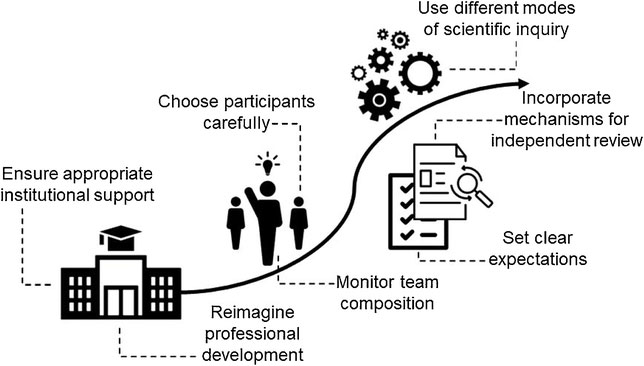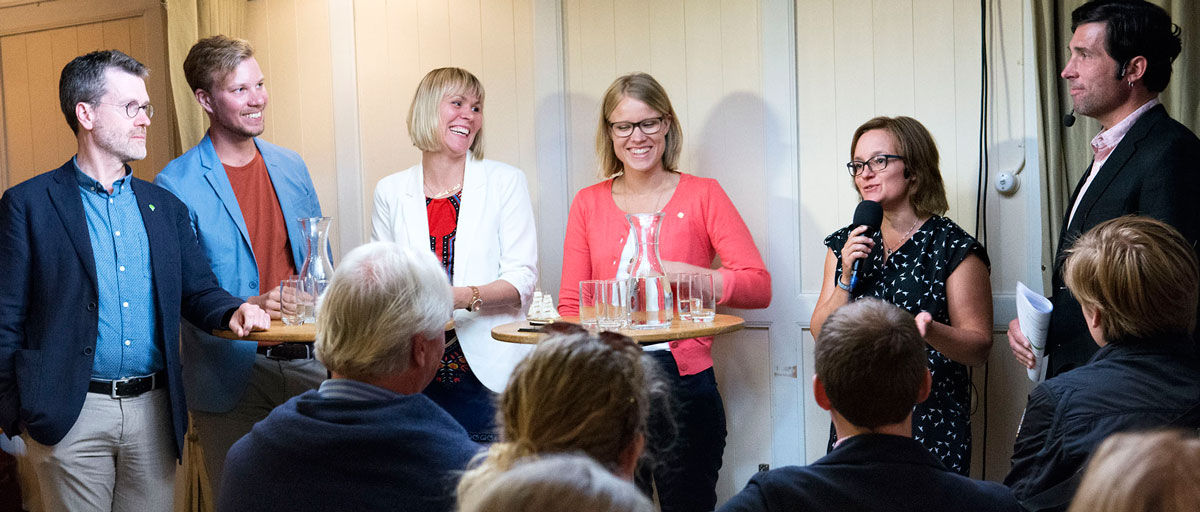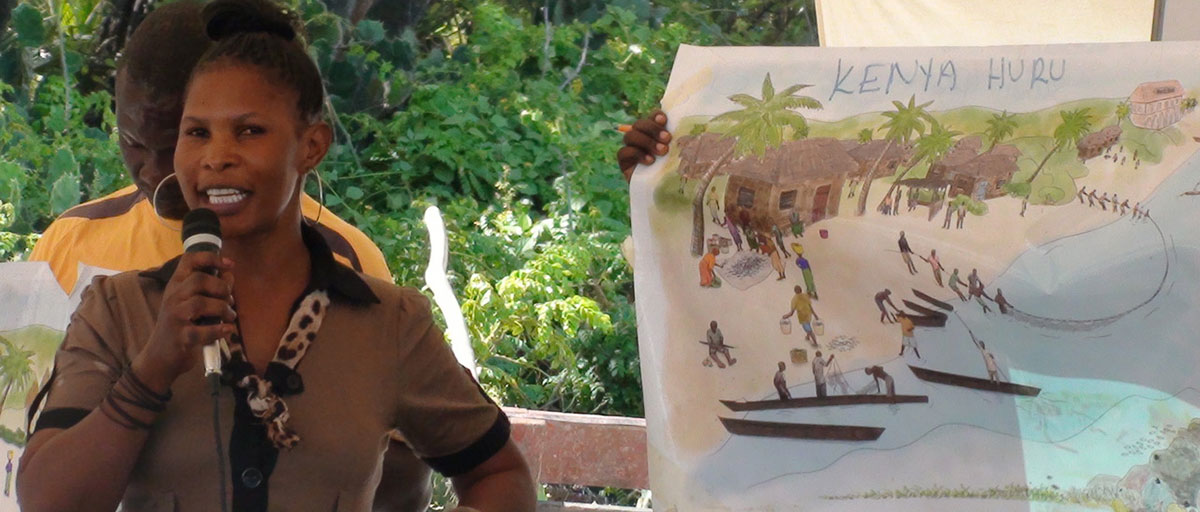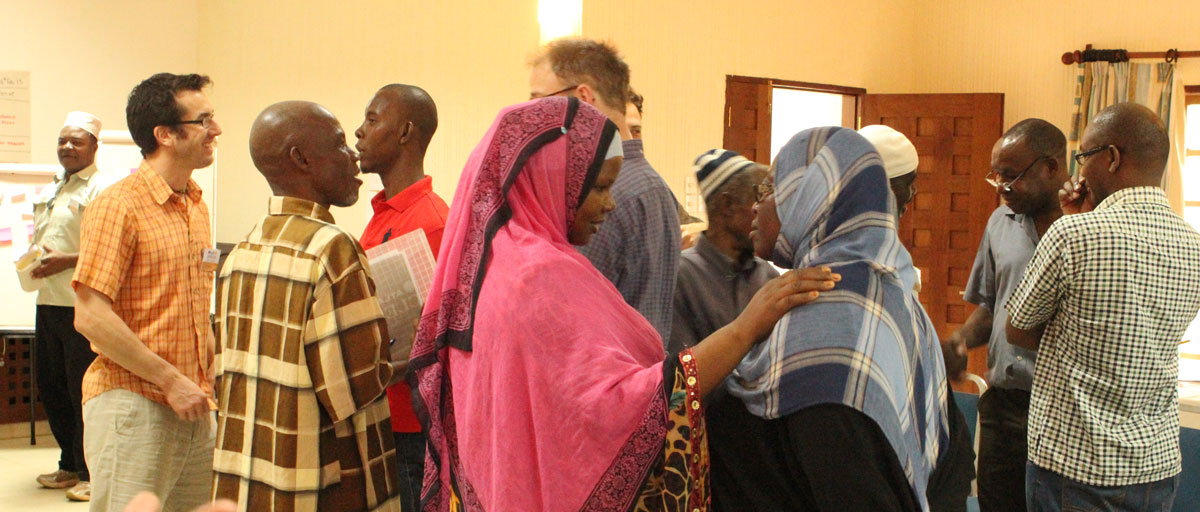
A new study looks at participatory research in climate adaptation research. Based on their review and experiences, the authors highlight seven strategies to successfully navigate participatory research. Photo: R. Malinga/Azote
Bildtext får vara max två rader text. Hela texten ska högerjusteras om den bara ska innehålla fotobyline! Photo: B. Christensen/Azote
research methods
The participatory way
With a suite of benefits, participatory research has become increasingly popular. But there are many challenges too. Researchers examine the method and share their own experiences
- New article looks at participatory research in climate adaptation science
- Benefits and challenges of participatory research are summarized from a literature review and authors own experiences with the method
- The authors highlight seven strategies that could help produce an effective participatory research process
There is an uncomfortable truth for scientists that research is sometimes perceived as inaccessible, exclusive, and elitist. A dichotomy between “them”, individuals and communities being studied, and “us”, the researchers studying them, emerges. One of many troubling aspects of this is that the people embedded in the research context are no longer considered experts in their own right. Ignoring this is a loss of valuable knowledge. The depth of knowledge accumulated by fishers who have spent years and years at sea would be impossible for other sources to capture.
Participatory research has been an answer to these critiques, particularly when it comes to generating research that should be incorporated into decision making processes. It allows researchers to include those embedded in the research context as sources of knowledge, and also acknowledge other forms of knowledge, such as traditional or indigenous. Participatory research is popular among many disciplines, such as climate adaptation science. However, its benefits, challenges, and strategies for effectively implementing it as a method have not been thoroughly examined.
Centre researcher Albert Norström and colleagues from Australia National University, University of Arizona and University of Oxford, have recently published a paper in Environmental Science and Policy about participatory research in climate adaptation science.
The goal of this article was to identify the potential challenges associated with participatory research more generally, and propose strategies for managing them, to help maximize benefits resulting from participatory climate adaptation research processes
Albert Norström, co-author
Link to article
Request publication
Salience, credibility and legitimacy
Participatory research emerged as way to make research more "democratic, through stakeholder engagement, and impactful, by tying it to actions that benefit those stakeholders," explains Norström. It improves the researches’ salience, credibility, and legitimacy when it comes to being incorporated into decision-making processes.
It also allows for multiple types of knowledge to be included in the decision-making process. “This is important given that scientific knowledge is only one form of knowledge system that can contribute to informing climate adaption decision-making processes,” adds Norström.
Furthermore, it allows for meaningful relationships to be built between people that otherwise might not regularly interact, such as researchers, stakeholders, and decision-makers. When working together, individuals are more likely to trust decisions, and create a shared identity and purpose. When it comes to policy and decision-making processes, this type of collaboration is important so that everyone involved feels their needs are met.
Inclusive, but…
Amid the many advantages of participatory research, there are challenges too. Navigating multiple perspectives and values can make data collection complicated, and create challenges for participatory research.
From a scientific process perspective, there are still power imbalances to be considered. The researcher still often holds the power when it comes to deciding what information is included in the research process. Other biases – in beliefs or information - may end up in the research, which in turn could affect the quality of the results and compromise policy decisions.
While participatory research adds a level of complexity to the research process, many funders now encourage participatory research. But there is also the risk that participatory research is developed in studies where other methods would work as effectively. Furthermore, participatory researcher is resource intensive, be it in time, money, or travel.
This type of research can also have personal impacts for the researcher. Norström and his colleagues highlight how time-consuming participatory processes are for researchers, and how these processes can have impacts on researchers’ personal well-being, career growth, and their validity as an objective observer in the research process.
Seven strategies for better research
Despite these challenges, researchers believe that there are solutions. As Norström notes, “These challenges are not insurmountable, and in this paper, we have drawn upon other sectors where participatory research approaches are commonly implemented to start to identify strategies for managing these challenges, and reduce the risks they pose.”
Based on their review and experiences, the authors, led by Christopher Cvitanovic from Australian National University, highlight seven strategies to successfully navigate participatory research:
1. Carefully choose participants and researchers involved in the research process – a team that can work together effectively with endure better results
2. Monitor team composition and adjust – once the team is selected, the work doesn’t stop there. The team needs to be monitored, and adjustments should be made to avoid conflict or power imbalances.
3. Set clear expectations that everyone agrees upon
4. Use different and reflexive methods and facilitation techniques
5. Incorporate an independent reviewer in the research process
6. Reimagine professional development – research institutions should better equip its staff with skills that promote participatory research, such as active listening, mediation, or facilitation
7. Ensure institutional support – good research practices should be encouraged through setting clear expectations, and providing legal and financial support. Furthermore, institutions should recognize how time and resource intensive good participatory research is for its researchers.
When it comes to participatory research and strategies, the authors agree that: “Underpinning all strategies is the central importance of relationships, trust, credibility, and social learning, as researchers, practitioners, policy-makers and the broader community embark together on this new journey toward participatory knowledge generation use."

Visual representation of the seven strategies that can be used to manage the challenges and risks of participatory adaptation research.Click on illustration to access scientific article.
Methodology
To develop this paper, the authors reviewed literature on participatory research, and also included their own experiences. With respect to drawing on their personal experiences, they point out that this is from a developed, western, academic background, and emphasize that further investigations are needed for other contexts.
Cvitanovic, C., Howden, M., Colvin, R.M., Norström, A., Meadow, A.M. and Addison, P.F.E., 2019. Maximising the benefits of participatory climate adaptation research by understanding and managing the associated challenges and risks. Environmental Science & Policy, 94, pp.20-31
Albert Norström is deputy director of the Guidance for Resilience in the Anthropocene: Investments for Development (GRAID) programme, and member of the Science Committee of Future Earth's Programme on Ecosystem Change and Society (PECS). He is also a researcher specializing in futures research, and coral reef social-ecological dynamics.










